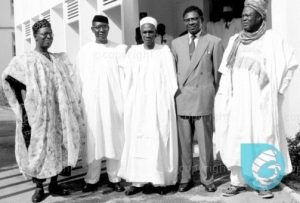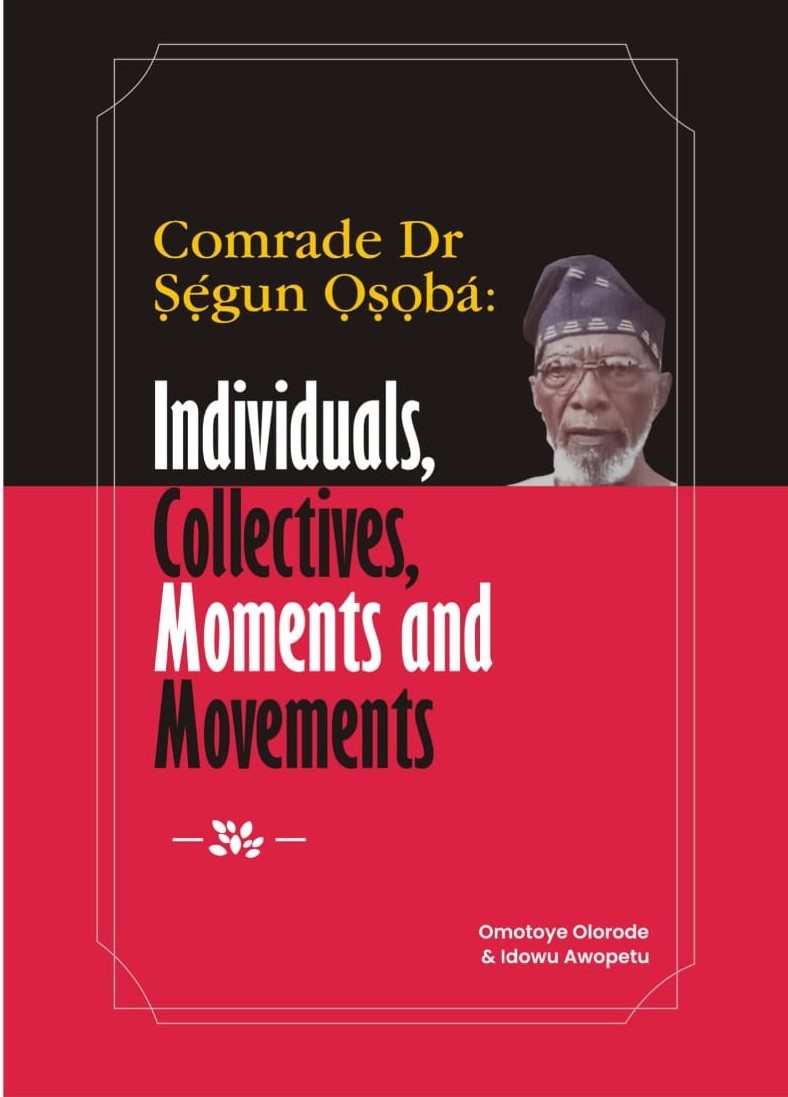By Adagbo Onoja
Although it won several battles, it lost the war. As the losing party in the grand struggle for which perspective should ground Nigeria, it is at the receiving end of the consequences of losing a war. The history of the encounter is being scripted by those who won even as the winners have been thrown into unbelievable disarray because the losers are not there. In other words, the Nigerian ruling class cannot know itself and do what it ought to do if the radical establishment is not there to remind it of that class task. That brings up the argument of the deconstructivists that victory as a word hasn’t got a natural meaning by which it can be understood outside of the usage. Like all other words, victory also derives its meaning from what it is not rather than whatever mental image which pops up whenever it is mentioned.

The much hated conservatives of yesterday have become the angels of today in the annals of political leadership in Nigeria.
There cannot be winners if there are no losers. In the absence of the losers in the war for the soul of Nigeria between the radical establishment (another slippery usage) and the status quo elite, the latter has degenerated. That degeneration illustrates why ruling circles in certain parts of the world set aside huge sums of money establishing research centres, universities, think tanks and similar institutions, charging them with producing the kind of research outputs that are radical and, on the face of it, goes against the interests of the status quo. It’s a strategy of approaching self-preservation through narrativisation among the bourgeoisie, particularly in Europe. The ruling class in Nigeria has not acquired that attribute yet. Bola Tinubu and Abubakar Atiku have manifested certain elements of that by their tradition of a critical kitchen cabinet but Tinubu’s messy statecraft so far doesn’t suggest anything systematic in his practice of palace intellectuals. Atiku has not been his own man in power yet as for it to be possible to put him on a scale. The late Gen Shehu Yar’Adua remains the unbeatable grandmaster in that respect aside from IBB.
The radical establishment in Nigeria might have been defeated but it has a rich heritage of having been the balancer in system survival. Whether to have been the balancer is a mark of failure or of an achievement in relation to its proclaimed aspirations is an issue that only further collective reflection can determine. But talking of a rich heritage means there are mandarins to be celebrated by it even in conquest. The radical establishment is, in a totally unplanned move, paying attention to this through what one can call a memorialisation turn in its. It is either packing its articulatory artefacts – essays, books, agitation tracts and significatory arsenal into a library facility Or it is organising a burial of one of its or in hegemonic articulation of a leading activist at his birthday.
It remains to be seen whether this is its own way of writing its way into hegemony as (socialist) strategy in radical democratic politics or doing something to which it attaches no relational significance. Great if it is the former, too bad if it is the latter.
Intervention can reveal that, in the meantime, it is set to mark the 90th anniversary of an unusual member or should we say a truly exceptional member? in the person of Dr Segun Osoba, the ex-OAU Ile-Ife historian, academic and activist. On two grounds, Osoba is not an ordinary radical historian.
First, he published a journal essay in 1978 (The deepening crisis of the Nigerian national bourgeoise) which profiled the Nigerian ruling class as a class with a crisis of mission. That is a ruling class which doesn’t have that clarity about how to take an agrarian society to an industrial one. Nigeria did have a development strategy but the Super Permanent Secretaries who drafted it were different from the military commanders who became the superintendents of the strategy. It is anybody’s guess if this is where the rupture in making the development strategy work resides.
Osoba’s essay was a risky venture because such analysis bordering on prediction can ruin a scholar activist. The contingent character of the social has made prediction a near no-go area, especially in the social sciences and the humanities. Things looking so bad in one minute could turn so bright with a push from a completely strange trigger the next minute.

Surely one of the best fighting documents available to the Left in the age of ‘regimes of truth’
The fragility (or is it the volatility?) of the connect between members of the Nigerian power elite and its foreign patrons made the essay even more risky. Even the Shehu Shagari regime rejected IMF conditionalities after an all-night meeting, notwithstanding Thatcherism breathing down on their neck. Buhari in 1984 rejected the conditionalities too. The gap toothed one fell to the foreign patrons and Nigeria has never been the same again.
Osoba has turned completely right in his conclusion and prediction. Osoba took a risk and won. From the Babangida regime, the relationship between the Nigerian elite and the Western world has turned from partnership to slavery. That’s where it is today. Even the West marvels how so slavish any ruling class could be, with every presidential aspirant since 1999 making reform an article of faith, implementing it most times well beyond what the West ever asked for and at a time Ethiopia, Rwanda, Egypt, South Africa and, recently, the Sahelian junta are thumbing up their nose at Western do- gooder-ness in Africa. No. Not for the Nigerian ruling class which prefers ideological blindness and slavery even at a time the West is divided over its agenda in Nigeria.
The second ground Intervention can arraign for Osoba exceptionalism lies in his co-authorship of the Minority Report – an alternative to the Draft Constitution the Constitution Drafting Committee produced in the late 1970s. It was with his fellow Historian, academic and activist – the now late Dr Bala Usman. Why neither that alternative document along with Chapter Two of the subsisting 1999 Constitution are not core agitation documents of Left politics in Nigeria remains baffling. Might it have anything to do with the weight of determinism and associated problems of calculability and certainty imposed by essentialist Marxism as opposed to significatory warfare, with implications for rousing even the hated bourgeoisie into the leap of fate?
Anyway, these two grounds make Osoba an exceptionalist because he and Bala Usman have left a document which can be critiqued, improved upon and deployed to deadly effect by any Left determined to do so through a representational practice of power.
Meanwhile, what might January 9th, 2025, Osoba’s 90th birthday look like? Are there any reasons why it should not be a complete outing, a day of homage to the gourds, complete with layers of gyration from the warriors of Pentecostal republic, workers, unemployed youths, circuits of the urban poor and similar confluences of the oppressed? All of these in obedience to the logic that there is no better power resource for the rump of Left politics in Nigeria than constructing itself into a hegemonic consensus, a strategy that cannot be achieved by the reductionist hook-up to the strategy of a working class insurrection in the age of environmental, gender, ethnic, trade and sundry layers of subjectivity. Trading the path of class binaries in the age of fluidity is a strategy of self-alienation, not of power.
However it goes, the Nigerian Left owes Prof Segun Osoba a carnival at his 90th birthday. And it should be possible to contemplate another carnival of radical self-discovery at the next anniversary of the Minority Report which carnival will nationalise Osoba and Bala Usman. Radical politics is about framing the moment. In that regard and without denigrating any other persons, Bala Usman and Segun Osoba are the luminous symbolic stars to this moment. As history is about unending interpretation, a new set of overall stars are absolutely possible tomorrow.




























